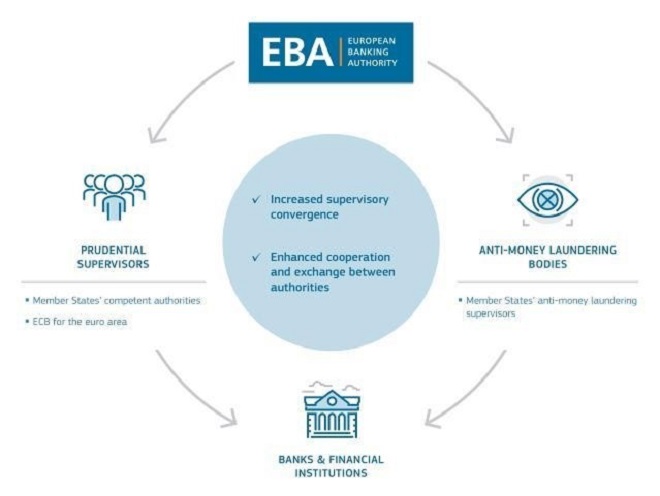Analytics, EU – Baltic States, Financial Services, Modern EU
International Internet Magazine. Baltic States news & analytics
Thursday, 01.01.2026, 15:01
Commission President’s last official message: appeal for strong and united Europe
 Print version
Print version |
|---|
In his State-of-the Union-address, SoU (in 14 pages), he
managed to cover most pressing for the EU’s integration issues. He started with
the appeals for unity and solidarity among different European nations,
especially when it comes to trade deals, geopolitics and migration.
As soon as the EU member states continue to squabble over
the best way to tackle the migrant and refugee crisis, the issues of “borders”
was important as well.
Instead of “condemning populism” (a recurring theme in
recent elections across EU states), the Commission President concentrated on
the states’ "sovereignty" and the EU’s and states’ obligations and responsibilities
on the international stage.
"The geopolitical situation makes this Europe's hour:
the time for European sovereignty has come. It is time Europe took its destiny
into its own hands," he said.
Euronews
underlined other note-worthy words in the speech: - "elections" (the
EU Parliament election will take place next year); and - "Africa" (he
described the continent as "the future" and pushed for deeper
partnership).
See more in: http://www.euronews.com/2018/09/12/juncker-s-state-of-the-union-the-words-to-remember
Previous SoUs
Seemingly, the 2017 and 2016 speeches have been rather similar:
hence, such issues as “unity” and “solidarity” were among the main themes, as
well as the economic ones. There were slightly different themes in SoU- 2015,
which included such issues as refugee crisis and asylum seekers, Greece and
eurozone problems.
Quite notable, that recently Greece had voted in a
referendum to decide whether to accept the bailout conditions laid down by its
creditors. The country was still in the midst of a persistent recession that
continued to threaten the survival of the euro single currency.
Addressing money-laundering
While the EU has strong anti-money laundering rules in
place, recent cases involving money laundering in some EU banks have raised
concerns that those rules are not always supervised and enforced effectively. This
creates risks for the integrity and reputation of the European financial sector
and can damage financial stability for specific banks.
As part of the broader efforts to complete Banking Union by
risk reduction and risk sharing and develop Capital Markets Union, decisive
action must be taken to ensure that anti-money laundering rules are effectively
supervised across the EU, and different authorities cooperate closely with each
other.
The Commission proposed amendments to the Regulation on the
European Banking Authority (EBA) in order to strengthen the EBA's role and give
it the necessary tools and resources to ensure effective cooperation and
convergence of supervisory standards.
This is part of a broader strategy to strengthen the EU
framework for prudential and anti-money laundering supervision for financial
institutions. It consists of legislative and non-legislative measures to make
anti-money laundering supervision more effective and improve the cooperation
between prudential and anti-money laundering supervisors.
These measures will contribute to promoting the integrity of
the EU's financial system, ensuring financial stability and protection from
financial crime.
The supervisory framework for combating money laundering is
based in the EU on the Anti-Money Laundering Directive, which also applies to a
number of actors outside the financial services sector. While the rules are set
at European level, their enforcement is carried out by national
authorities.
The fifth revision of the Anti-Money Laundering Directive is an important step forward
towards a stronger supervision of money-laundering issues in the EU. The
Directive sets up a system for better cooperation and exchange of information
between money-laundering and prudential supervisors. It also provides for the
conclusion of a Memorandum of Understanding between the money laundering
supervisors and the European Central Bank for the exchange of
information.
See more on the Directive in:
https://eur-lex.europa.eu/legal-content/EN/TXT/?uri=CELEX%3A32018L0843
Additional actions on supervision
Despite existing strong legislative framework, several
recent cases of money laundering in European banks have given rise to concerns
about weaknesses and gaps in the implementation of the legislative framework by
the EU's network of different supervisors, in relation to three issues in
particular:
- Delayed
and insufficient supervisory actions to tackle weaknesses in financial
institutions' anti-money laundering risk management;
- Shortcomings
with respect to cooperation and information sharing both at domestic
level, between prudential and anti-money laundering authorities, and
between authorities in different Member States;
- Lack
of common arrangements for the cooperation with third countries in
relation to the anti-money laundering supervision of financial
institution.
It was agreed in the EU, that the supervision of compliance
with anti-money laundering legislation is carried out at the national level.
However, in the EU’s Banking Union, the Single Supervisory Mechanism (SSM) is
tasked with the direct supervision of significant banks. At the same time, for
the prudential aspects relevant to money laundering supervision, it has to
apply and rely on national legislation transposing EU Directives in the member states.
At EU level, the European Supervisory Authorities (the
European Banking Authority, the European Securities and Markets Authority, the
European Insurance and Occupational Pensions Authority) have the mandate to
ensure that the Union's prudential and anti-money laundering rules are applied
consistently, efficiently and effectively. However, this is just one of the
many tasks these authorities have to carry out. In addition, supervisors are
subject to differently transposed national rules, as prudential requirements in
legislation have not been supplemented with harmonised guidance.
Changes in the anti-money laundering framework
In order to reduce risks in the EU financial system, the
updating of the European Supervisory Authorities is introduced with a set of
targeted amendments to the existing legislation on prudential supervision. Anti-money
laundering responsibilities in the financial sector will be entrusted
specifically to one of the three European Supervisory Authorities, namely the
European Banking Authority (EBA), as it is in the banking sector that
money-laundering is having a “systemic impact”: the EBA's mandate will be more
explicit and more comprehensive, accompanied by a clear set of tasks, with corresponding
powers and adequate resources.
Besides, the Commission will give the EBA a mandate to
ensure that risks of money laundering in the Union's financial system are
effectively and consistently incorporated into the supervisory strategies and
practices of all relevant authorities.
The amended Regulation will:
- ensure
that breaches of anti-money laundering rules are consistently
investigated: the EBA will be able to request national anti-money
laundering supervisors to investigate potential material breaches and to
request them to consider targeted actions - such as sanctions;
- provide
that the national anti-money laundering supervisors comply with EU
rules and cooperate properly with prudential supervisors. The
EBA's existing powers will be reinforced so that, as a last resort if
national authorities do not act, the EBA will be able to address decisions
directly to individual financial sector operators;
- enhance the
quality of supervision through common standards, periodic reviews
of national supervisory authorities and risk-assessments;
- enable
the collection of information on anti-money laundering risks and trends
and fostering exchange of such information between
national supervisory authorities (so-called data hubs);
- facilitate
cooperation with non-EU countries on cross-border cases;
- establish a
new permanent committee that brings together national anti-money
laundering supervisory authorities.
These amendments will bring major improvements to the supervisory framework of anti-money laundering risks and contribute to risk reduction in the financial sector, as seen in the table below.

Three European Supervisory Authorities combating money laundering
A dedicated committee will be established within the EBA to
prepare decisions relating to money laundering and terrorist financing measures
(comparable to the existing EBA bank resolution committee). It will be composed
of heads of national supervisory authorities responsible for ensuring
compliance with laws against money laundering and terrorist financing. The EBA
will also cooperate closely with the ESMA and the EIOPA in the framework of the
existing Joint Committee of the European Supervisory Authorities (ESAs).
More in: http://europa.eu/rapid/press-release_MEMO-18-5725_en.htm?locale=en








 «The Baltic Course» Is Sold and Stays in Business!
«The Baltic Course» Is Sold and Stays in Business!

